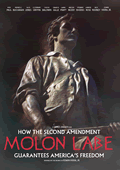WOMAN CARRIES FIGHT TO COURTROOM TO STOP GOVERNMENT FROM KILLING ORPHANED DEER
By
Sarah Foster
Posted 1:00 AM Eastern
September 8, 2015
© 2015
NewsWithViews.com
CHITTENANGO, N.Y. -- The legal battle of a state-licensed wildlife rehabilitator, who is challenging an order by the New York Department of Environmental Conservation (DEC) that she either euthanize or release two female deer she rescued, moves to a courtroom in Syracuse where her case will be heard today by Madison County Supreme Court Judge Donald Cerio.
As NWV reported in an earlier piece, the DEC in June ordered Cindy McGinley, 54, to make a heart-breaking decision: she could euthanize the deer she has cared for since they were fawns or hand them over to the DEC, the younger one to be euthanized, the older to be either euthanized or perhaps released in a remote part of the state, miles away from the 12-acre farm in central New York where she has lived her entire life.
McGinley’s
problems had started when she applied to DEC for a special a  License
to Possess for Education/Exhibition purposes (LCPEE) in April. The DEC
did not respond for six weeks, but on June 18 she received a letter
stating bluntly that her application was denied and she had until June
30 to euthanize the deer or contact the DEC and make arrangements for
them to be handed over.
License
to Possess for Education/Exhibition purposes (LCPEE) in April. The DEC
did not respond for six weeks, but on June 18 she received a letter
stating bluntly that her application was denied and she had until June
30 to euthanize the deer or contact the DEC and make arrangements for
them to be handed over.
Rather than submit unquestioningly to the directive, McGinley decided to fight for the “girls,” which she had named Deirdre and Lily. Deirdre is five years old, and as McGinley sees it, she might survive if released into the wild but it is unlikely. She knows nothing of the world beyond the confines of her fenced pastures. “She’s really more domestic than wild,” McGinley says. Lily, a yearling, is blind and wouldn’t stand a chance against the elements and various predators.
“I have spent a lot of time and effort and love, trying to save the lives of these animals, and now they want to take their lives? McGinley told the media in July. “The DEC never came out to see my facility. They just chastised me and told me what to do with the deer.”
As
a first step, McGinley launched a Facebook
page – titled Save Deirdre and Lily – and started a
petition
at Care2 that has drawn nearly 220,000 signatures.
Judge Cerio is familiar with the situation. In late June he issued an
injunction for the DEC to show cause and granted McGinley a temporary
restraining  order
that stopped the department from carrying out whatever plans they might
have. He later rescinded the TRO for technical reasons, but not until
the DEC had stated in writing that they wouldn’t seize or move
against the deer before a scheduled hearing was held.
order
that stopped the department from carrying out whatever plans they might
have. He later rescinded the TRO for technical reasons, but not until
the DEC had stated in writing that they wouldn’t seize or move
against the deer before a scheduled hearing was held.
“That was his condition for vacating the TRO,” McGinley told NWV recently. “So at least for now, they’re safe.”
McGinley has a new attorney to argue her case: Thomas J. Fucillo, of Menter, Rudin and Trivelpiece, who leads the firm's Environmental Law practice group.
Her previous attorney, James Roman of Chittanango, successfully handled the last-minute effort to secure a temporary restraining order, but was reluctant to become more deeply involved as he is not a wildlife or an environmental law specialist, which he told her she needed.
McGinley said she started phoning around, but none of the attorneys she talked to were willing to become embroiled in a case involving wildlife. “I got passed around, passed around, and referred and referred and referred – until I finally talked to Mr. Fucillo, and he agreed,” she recalled.
According
to his bio on the firm's website, Thomas Fucillo has more than 27 years
of broad-based environmental and litigation experience, as a judge advocate,
an environmental regulator, and in private practice. He was the Regional
Attorney for Region 7 of the New York State DEC, responsible for environmental
enforcement and legal affairs in the nine county Region in Central New
York, and before that he was the Assistant Regional Attorney in DEC's
Region 6.
" I think it's a very interesting dispute," Fucillo told NWV
in a recent phone interview, "but I've told [my client] all along
that it's going to be a tough one because the agencies are given a lot
of discretion to make these kinds of decisions."
In his view, the DEC's decision to deny McGinley's application for a
special LCPEE permit that would allow her to keep the deer, at the same
time demanding they be euthanized, is "disturbing" because
there is no rational basis. In particular, it was "arbitrary and
capricious."
Instead of arguing over the injunction, Fucillo will argue that the DEC's decision was out of accordance with Article 78 of the New York Code and the DEC determination was "arbitrary and capricious."
Article 78, Fucillo explained, is a law that's specific to New York. It is that state's proceeding for challenging the determinations of a state or local agency and is specific to the CPLR (Civil Practice Law and Rules).
“Article 78 specifically relates to challenges to the actions and determinations of agencies,” he explained. “You can’t sue a state agency unless you go under Article 78, unless it’s something that has to be brought in a court of claims. But in terms of challenging a determination of an agency that’s based on a discretionary determination you have to go under Article 78.”
Fucillo said he had handled “quite a few” Article 78 cases, “but I’ve never done one involving a blind deer before, I’ll tell you that.”
“The basis for challenging the action of an agency has to be one of certain specific claims that you’re making and one of them is that a discretionary action was arbitrary and capricious – and we certainly believe it is,” he continued. “The DEC believes Cindy violated the terms of her rehabilitation permit so they were justified in denying this license to possess.
“But I think there are a lot of good arguments as to why it was arbitrary and capricious. I think essentially they denied her application without giving her a lot of good reasons,” he said. “Our position is that there isn’t a rational basis for their decision.”
Asked what the next option might be if the judge did not accept his argument, Fucillo explained that there is an appeal process, an avenue for appeal of an Article 78.
Is this a David and Goliath battle? NWV asked?
|
|
“Well, I think whenever an individual has a lawsuit against the state it’s an uphill battle and kind of a David and Goliath situation,” Fucillo answered. “But people do win Article 78s. An agency has to have a rational basis for its decision whenever it issues a discretionary ruling that impacts somebody. Our position is that basically all the DEC did was to deny Cindy’s application because she was in violation of something else. [not filing certain papers] I think you need a bit more than that.”
In an attempt to have as many options as possible, McGinley says she also wrote to Assemblyman Jim Tedisco (R-Glenville), who is concerned about animals and how they’re treated. He wrote back that he plans to look into the matter and perhaps introduce some correcting legislation.
The problem is, McGinley points out, the legislature doesn’t reconvene until January.
“We could get a bill rolling, but that may be too late for my girls,” she said.
© 2015 NWV - All Rights Reserved












 Share
This Article
Share
This Article




